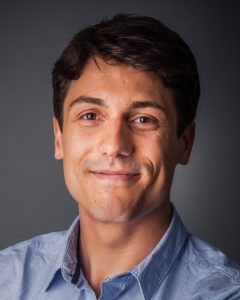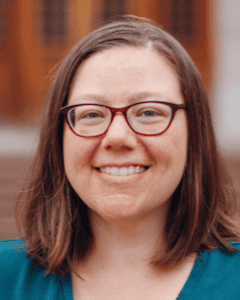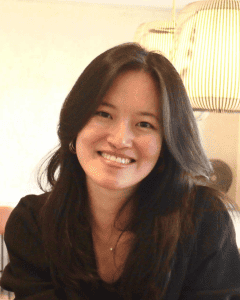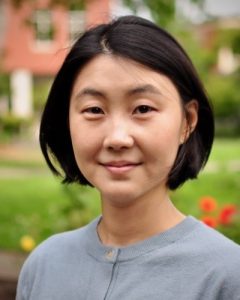Sunday, May 19, 2024, 1:00 – 2:00 pm EDT, Snowy Egret
Organizers: Claudia Damiano, University of Toronto and Stephanie Shields, University of Texas at Austin (VSS Student-Postdoc Advisory Committee); Jody Culham (VSS Board of Directors)
Moderator: Claudia Damiano, University of Toronto
Speakers: Robert Geirhos, Google DeepMind; Kim Meier, University of Houston; Joan Ongchoco, University of British Columbia: Woon Ju Park, University of Washington; Jake Whritner, Exponent
Back by popular demand! Following requests to repeat last year’s event, the VSS-SPC is hosting a panel discussion on early career transitions, from the undergraduate level up through securing faculty positions and jobs outside of academia. A panel of vision scientists with a variety of chosen career paths will discuss their stories, the transitions they’ve gone through in their careers, and how they made the key decisions that led them to their current jobs. After each panelist gives an overview of their story, audience members will be invited to participate in a question-and-answer session with the panel. The panel will include representatives from both academia and industry, so attendees will hear firsthand perspectives both on navigating academia and on transitioning between academia and industry. Especially given the recent layoffs in industry and the pandemic’s lasting impact on hiring in higher education, we hope the panel will provide useful insights into current trends affecting early career researchers and ideas for how trainees can increase their chances of success in today’s professional landscape.

Robert Geirhos
Research Scientist, Google DeepMind
Robert Geirhos is a Research Scientist at Google DeepMind, located in Toronto. He obtained his PhD on comparing human and machine vision from the University of Tübingen and the International Max Planck Research School for Intelligent Systems, where he worked with Felix Wichmann, Matthias Bethge and Wieland Brendel. His research has received the ELLIS PhD award and an Outstanding Paper Award at NeurIPS. Inspired by research on human visual perception, Robert aims to develop a better understanding of the hypotheses, biases and assumptions of modern machine vision systems, and to use this understanding to make them more robust, interpretable and reliable. Dr. Geirhos’ website is https://robertgeirhos.com/.

Kim Meier
Assistant Professor, College of Optometry, University of Houston
Kim Meier spent a few years at community college trying out a few things before transferring to Simon Fraser University where she discovered research is fun, and obtained a BA in cognitive science and psychology. She then attended the University of British Columbia where she earned a PhD, and did a postdoc at the University of Washington. Now, she is Assistant Professor in the College of Optometry at the University of Houston. Overall, her work aims to understand how the visual parts of the brain typically develop, how this development is impacted when a person has prolonged atypical visual experience during childhood, and how perceptual abilities change as a function of treatment success. Her research tools include psychophysics, EEG, MRI, and eye-tracking.

Joan Ongchoco
Assistant Professor, University of British Columbia
Joan Ongchoco is an incoming Assistant Professor at the University of British Columbia and the director of the UBC Perception & Cognition Lab. Before starting her lab, she decided to pursue a postdoctoral research fellowship at Humboldt Universität zu Berlin with Martin Rolfs. Prior to this, she obtained her PhD from Yale University, where she worked primarily with Brian Scholl. Joan is interested in the ways that perception — especially what we *see* — can interact with broader mental life. This includes exploring varieties of ‘everyday hallucinations’ we experience, as well as the consequences of event boundaries (such as doorways) on perception, memory, and decision-making. Her work draws connections across multiple areas and disciplines. She is the recipient of the 2021 William James Prize awarded by the Society of Philosophy and Psychology.

Woon Ju Park
Research Scientist, University of Washington
Woon Ju Park is an incoming Assistant Professor in Psychology at Georgia Institute of Technology starting this August. She completed her PhD in Brain and Cognitive Science from the University of Rochester working with Dr. Duje Tadin. She is currently a NIH K99/R00 Pathway to Independence fellow and Research Scientist in Dr. Ione Fine’s lab at the University of Washington. Woon Ju is particularly interested in understanding how experience and atypical development affect sensory processing. She has studied this in diverse human populations, including children with ASD, older adults, and those with early or late-onset visual impairments. Her current research focuses on understanding the effects of early blindness on the structure and function of the brain. To learn more about Woon Ju’s academic journey and current research, please visit her website.

Jake Whritner
Human Factors Senior Scientist, Exponent
Jake Whritner earned his PhD in Psychology from the University of Texas at Austin, where he used human psychophysics to study 3D motion perception. His dissertation work tested the contribution of various depth and motion cues that the human visual system relies on to interact with the dynamic 3D world. At Exponent, Jake extends his expertise to practical applications, such as analyzing human factors related to motor vehicle accidents, warnings, and slip/trip and falls. He also uses mixed methods to assess user behavior to inform product design and risk assessment through surveys, interviews, and user studies.

Claudia Damiano (Moderator)
Postdoctoral Researcher, University of Toronto
Claudia Damiano is a Research Associate (senior postdoctoral researcher) at the University of Toronto, working with Dirk Bernhardt-Walther. She previously completed a postdoctoral fellowship in Leuven, Belgium, working with Johan Wagemans. Broadly, her research aims to understand how visual features impact aesthetic preferences and guide attention. Her work contributes to our understanding of the relationship between human perception and the appreciation of natural environments. Claudia has served as a panelist on similar early-career panels, offering advice to Master’s and PhD students about transitioning to a postdoc position. As a moderator, she will ensure that the panel offers valuable insights and actionable advice to attendees.
